
18 Books You Should Read This September
Summer is Over, Time to Hit the Books
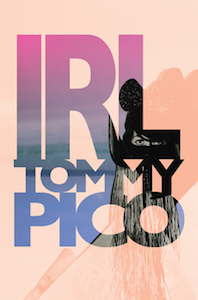
IRL, Tommy Pico
(Birds, LLC)
Tommy Pico has accomplished a considerable amount in the last few years, from his own writings to his work as founder and editor of birdsong. His first full-length book, the poem IRL, juxtaposes scenes from contemporary life, questions of desire, and theoretical discussions of art–and does so in a headlong, propulsive style. It resonates with the weight of history while also seeming deeply contemporary–an impressive accomplishment in and of itself.
–Tobias Carroll (Lit Hub contributor)
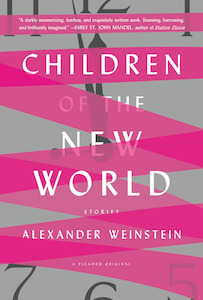
Children of the New World, Alexander Weinstein
(Picador)
Children of the New World by Alexander Weinstein reminds me of Black Mirror, a British TV show that explores near-future scenarios. In the title story, a childless couple grows more and more attached to their virtual children. My personal favorite is “The Cartographers,” where a man who sells memories for a living learns an unpleasant truth about his own life. These stories are equally unnerving and tender, and a reminder that what we ultimately long for is human connection.
–Michele Filgate (Lit Hub contributing editor)
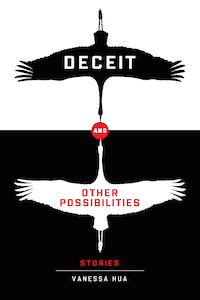
Deceit and Other Possibilities, Vanessa Hua
(Willow)
San Francisco Chronicle columnist Vanessa Hua’s first collection, Deceit and Other Possibilities, comes with a series of accolades, including Rona Jaffe and San Francisco Foundation James D. Phelan awards. Hua writes of the immigrant experience today with sophistication and punch. Forced to flee Hong Kong due to a sex scandal, celebrity Kingsway Lee retreats to San Francisco, his hometown, only to be dogged by racy online rumors. Lin, a newly unemployed software engineer, knows why her parents, just arrived from China, urge her to go back (the economy is booming there). If she returns, she can imagine the rest of her life: “Comfortable but predictable,” Hua writes. “Here, there was discovery, uncertainty, and possibility.” A Korean high school student fakes her acceptance to Stanford, moves into a dorm, signs up for ROTC, and fires up a spectacular conclusion to her time on campus. When Old Wu returns to the countryside west of Hong Kong on the Pearl River Delta 50 years after leaving for San Francisco, he is welcomed as a rich American uncle. “Though their welcome was a show, a shakedown, though he knew the children flocked to him out of survival and not out of love, he would never be received as an emperor again.” Ten exuberant stories filled with nuance and fresh detail.
–Jane Ciabattari (Lit Hub columnist)
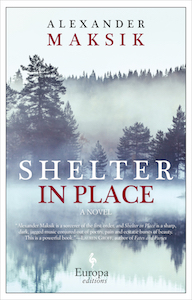
Shelter in Place, Alexander Maksik
(Europa Editions)
Maksik is one of the most exacting and daring writers we have. His new novel, Shelter in Place, is about mental illness, family ties and violence. Maksik has a reputation as a writer of elegant sentences, but the new work is more rugged and chiseled than You Deserve Nothing or A Marker to Measure Drift. Joseph March, fresh out of college and enduring a bipolar break, goes deep into the Pacific Northwest countryside to be near his mother’s prison. From the first sentence, there’s no turning away from this story: “In the summer of 1991 my mother beat a man to death with a twenty-two ounce Estwing framing hammer and I fell in love with Tess Wolff.”
–Dwyer Murphy (Lit Hub contributing editor)
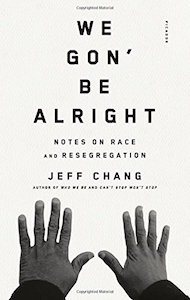
We Gon’ Be Alright: Notes on Race and Resegregation, Jeff Chang
(Picador)
The publication of Jeff Chang’s latest could not be more timely. As we enter the month of September with arguments about racism and what it means to be an American raging all about us, Chang’s essays offer some well-tempered reflections on the ways in which racism marks us all. The stories he recounts show us how beliefs about race operate to keep us from advocating for the common good, and how many of us find ourselves in “in-between” spaces in which we have been struggling to make peace with what America promises and what other Americans deny. While Chang elucidates the problems before us, he also challenges readers to find the spaces “where we come together, allowing us all to think about the ways we are broken and how we might mend the ways we break each other.”
–Lorraine Berry (Lit Hub contributor)
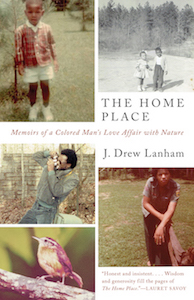
The Home Place, Drew Lanham
(Milkweed Editions)
I’ve been eagerly awaiting Drew Lanham’s memoir since I first read his “Rules for the Black Birdwatcher” in Orion Magazine a few years ago. The Home Place is a memoir of Lanham’s passionate and complicated love affair with the natural world. As a black ecologist who grew up in South Carolina—a place marked by the legacy of racism, violence, and the long shadow of slavery—Lanham’s story is one we seldom read in so-called “nature writing,” and one that feels timely and important.
–Stephen Sparks (Lit Hub contributor)
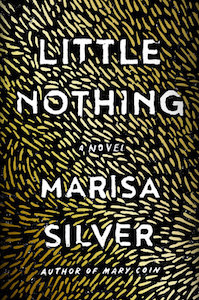 Little Nothing, Marisa Silver
Little Nothing, Marisa Silver
(Blue Rider Press)
Provocative and beautiful, Marisa Silver’s Little Nothing is one of the finest examples of magical realism I’ve read this year. Pavla is born deformed into a peasant family living in a small village in a country with no name. We follow her through a lifetime of transformations, some corporeal, some metaphysical, all of them extraordinary. With crackling prose and imagery drawn from folk tales, Little Nothing is as much about a society struggling to embrace modernity as it is about a young girl’s struggle to survive.
–Amy Brady (Lit Hub contributor)
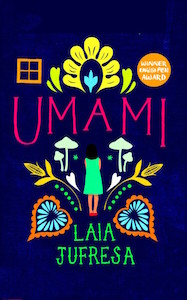
Umami, Laia Jufresa (trans. Sophie Hughes)
(Oneworld)
This book is such a gentle and sensitive deep dive into the cycles of mourning and loss out of which families are made and unmade, terrifying and uncanny, without ever losing sight of the daily banalities of hearth and home and love. Cooked to perfection, ready to serve.
–Aaron Bady (Lit Hub contributor)
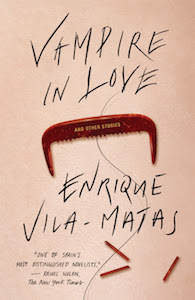
Vampire in Love, Enrique Vila-Matas (trans. Margaret Jull Costa)
(New Directions)
Ever since I first read Bartleby & Co. oh so many years ago, I’ve been hungry for more Enrique Vila-Matas, and as time has gone on, New Directions has begun to release translations of his work with much greater frequency. Until now though, English readers were only able to read his novels. With the release of Vampire in Love, we’re finally able to see Vila-Matas work on a smaller scale. Though they’re shorter in length, the tales in this collection are no less weird, wonderful, humorous, puzzling, and literature-obsessed than the novels that caused me to fall in love with his writing in the first place. Watch as a dinner companion at Marguerite Duras’ house remembers a pasts life in Atlantis in “Sea Swell,” as an overweight comedic actor in an attempt to find the Laurel to his Hardy approaches the wrong man in “In Search of the Electrifying Double Act,” as a writer responds to emails without reading them in “I’m Not Going To Read Any More Emails,” and you’ll know you’re watching a contemporary master at work.
–Tyler Malone (Lit Hub contributing editor)
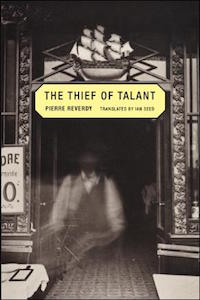
The Thief of Talant, Pierre Reverdy (trans. Ian Seed)
(Wakefield Press)
When Max Jacob challenged the poet Pierre Reverdy to write a novel, this curiously unsettling book was the outcome. A bricolage of avant-garde ephemera, The Thief of Talant is both a field guide to Paris’s Cubist years and a camouflaged portrait of Reverdy and Jacob’s paranoiac friendship. A literary experiment in lyrical disintegration.
–Dustin Illingworth (Lit Hub staff writer)
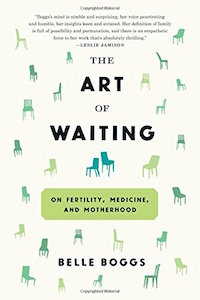
The Art of Waiting: On Fertility, Medicine, and Motherhood, Belle Boggs
(Graywolf Press)
Boggs’s book ponders not just motherhood, but also examines the massive landscape of self and society, one that begins in her North Carolina hometown under her parents’ porch where three feral cats give birth. Her journey takes place in this biome of her own creation, made of literature, legal questions, cultural history, psychological pain, body politics, human relationships, and the natural world. Boggs slingshots from landscape to landscape but always back to that (figurative) front porch with the untamable critters, a place emblematic of her sweet but fierce storytelling abilities. You don’t have to have children (or want them—I don’t) to love this book; you just have to be human. And I’m only on the first chapter.
–Kerri Arsenault (Lit Hub contributor)
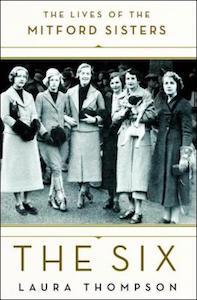 The Six, Laura Thompson
The Six, Laura Thompson
(St. Martin’s Press)
This is a great introduction to the glorious world of the Mitford sisters, those glamorous heartbreakers who dominated British society from the 1910s through the 1940s, and a breathless refresher for those like me who can’t get enough Mitfordiana. Not sold? Pop quiz: Do you like poking fun at little class distinctions? Women who fall in love with fascists and cavort with dictators (really, like Hitler level guys, not like your friend’s husband who has to pick the music)? How about courage in the face of war? Lively letters, Francophilism, and dashing young Communists, as well as the standard Bright Young Things? Answer yes to any or all of the above and you should jump right into the Mitford pool. It’s positively divine.
–Lisa Levy (Lit Hub contributing editor)
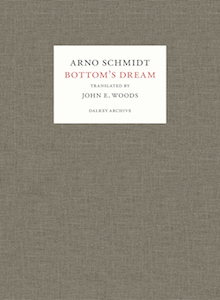
Bottom’s Dream, Arno Schmidt (trans. John E. Woods)
(Dalkey Archive Press)
There are probably entire demographics that have been alive for shorter spans of time than it has taken John E. Woods to translate Bottom’s Dream by Arno Schmidt, aka Germany’s answer to James Joyce. If the completely astonishing typography doesn’t get you (designed by the author just for this book) perhaps the book’s stats will: 1500 pages, 11 x 14 inches, weighing 13 pounds, this book could swallow War and Peace and not even notice. Remember September 23, 2016, friends: this is an event.
–Scott Esposito (Lit Hub contributor)
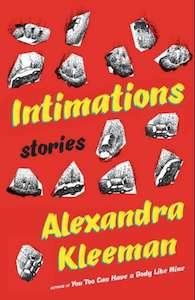 Intimations by Alexandra Kleeman
Intimations by Alexandra Kleeman
(Harper)
Alexandra Kleeman’s smart, strange, deeply unsettling debut novel You Too Can Have a Body Like Mine was one of the most creepily brilliant—not to mention wholly original—books of 2015. The twelve stories that make up her new collection, Intimations—some of which have already made a splash in The New Yorker, The Paris Review, BOMB, Guernica and elsewhere—prove that she is every bit as adept with the shorter form.
–Dan Sheehan (Lit Hub assistant editor)
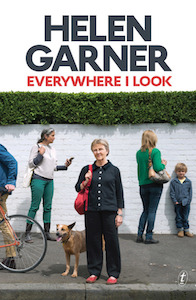
Everywhere I Look, by Helen Garner
(Text Publishing)
Helen Garner is an impossible combination. Imagine a writer who writes with the humor and precision of Joy Williams, the warmth and ferocity of Elena Ferrante, and the investigative rigor of Janet Malcolm, and you’ll begin to appreciate why Garner is a beloved treasure in Australia, where her novels, essays and books of true crime shoot straight to #1. This new book represents 15 years of her occasional work. Everywhere I Look features a devastating essay on her late mother, a loving tribute to her friend Tim Winton, a gorgeously light piece on the ukulele, and a snarling and barbed piece on the indignities of aging. The book also includes a section of the journals Garner has been keeping for several decades, revealing that she might have yet to reveal her masterpiece, a giant, rolling record of one of the world’s most finely tuned consciousnesses. Read this book and you will wonder how you lived for years without Garner’s voice in your ear.
–John Freeman (Lit Hub executive editor)
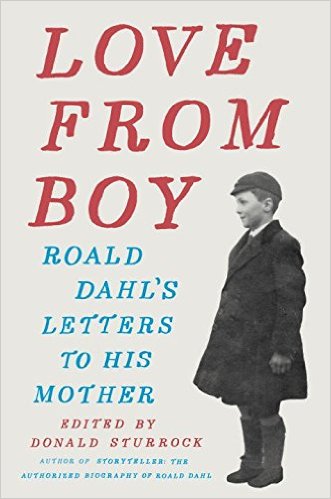
Love From Boy: Roald Dahl’s Letter to His Mother, Donald Sturrock, ed.
(Blue Rider Press)
When I was ten I came across a short story collection of Roald Dahl’s and, expecting to find the same kind of thing I’d encountered in books like Danny, The Champion of the World, I instead found myself reading a series of short, darkly disturbing tales, very much meant for grown ups. It was wonderful. Dahl’s letters to his mother are sweet, frequent, and occasionally harrowingly detailed in their accounts of calamity and tragedy, and through accretion reveal a complicated and brilliant storyteller, regardless how old the listener…
–Jonny Diamond (Lit Hub editor)
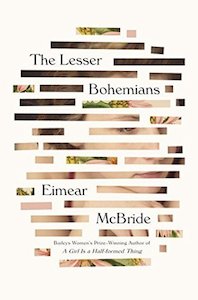
The Lesser Bohemians, Eimear McBride
(Hogarth)
The prose of Eimear McBride’s brilliant first novel, A Girl Is a Half-Formed Thing, recalled many a Modernist writer, from Gertrude Stein to James Joyce—so much so that she’s tired of being compared to Joyce. And her success story is also one both old and new: her novel took nearly a decade to be picked up and acknowledged, at which point it won both the Bailey’s and Goldsmiths Prizes. Her next novel, The Lesser Bohemians, moves to London in the 1990s, featuring a tempestuous love story between a young Irish girl studying drama and an older actor. It “nearly killed” her to write, McBride told the Guardian in August. McBride is the kind of writer’s writer who I’m always excited to read more from.
–Gabrielle Bellot (Lit Hub staff writer)

A Gentleman in Moscow, Amor Towles
(Viking)
I’m choosing this book not because I adored Rules of Civility, Towles’ debut, although I did; not because I rarely otherwise get to choose books written by men, although I don’t; and not because it’s a superb novel, although it is. No, I’m choosing this new novel from Towles because it’s utterly unlike his first, yet maintains that book’s immersive qualities. Count Alexander Rostov has become a “Former Person” in the USSR, and as we watch him deal with sling after arrow, we come to see how anyone confined to four walls—Jane Austen, Marcel Proust, Alexander Solzhenitsyn—can continue to think, live, and even create art. However, it’s also a terrific read with a fascinating narrator in Rostov.
–Bethanne Patrick (Lit Hub columnist)



















